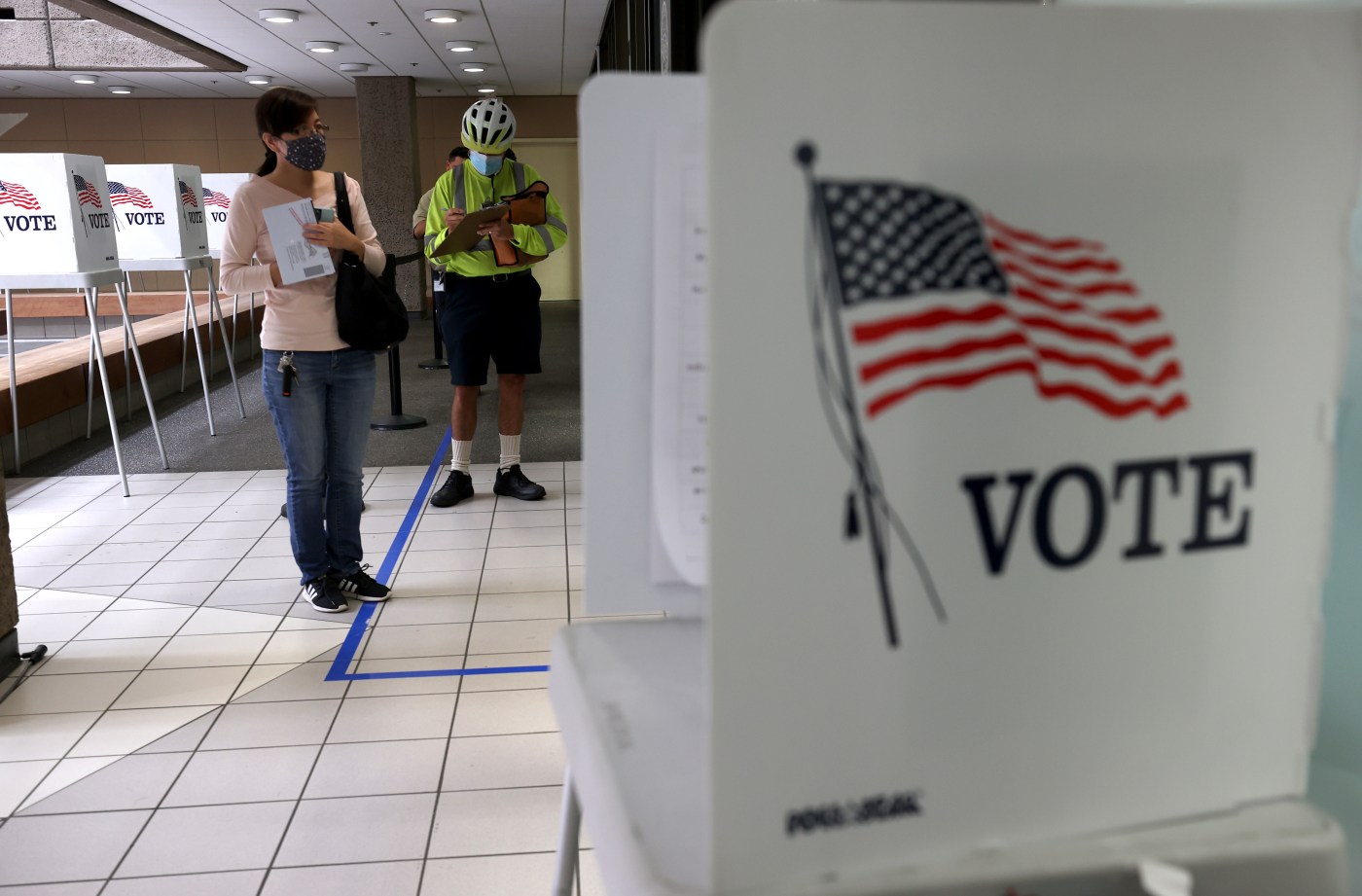
Santa Clara County’s Measure A has the support of likely voters who appear to favor a sales tax increase on the November ballot to fund the county’s health care system, a new poll commissioned by a local nonprofit shows.
The poll, which was obtained exclusively by The Mercury News and conducted by San Francisco-based David Binder Research, surveyed 600 registered voters in the county between July 12 and 16 about President Donald Trump, the “Big, Beautiful Bill” and asked whether they would vote for a five-eights-of-a-cent sales tax increase to help fill the funding gap the legislation is expected to create.
Related Articles
Opponents of Measure A say taxes are already too high in Santa Clara County
Town hall explores impacts of ‘Big, Beautiful Bill’ on Santa Clara County
How will California’s redistricting measure impact special elections in Santa Clara, Alameda counties?
Trump’s cuts to health funding could endanger life-saving services around the Bay Area. How one county is trying to save them.
Santa Clara County will ask voters in November to approve new sales tax to cover cuts from Trump’s “Big, Beautiful Bill”
When prompted with the ballot measure language, which the Board of Supervisors approved at an early August meeting, 31% of respondents said they would definitely vote for the sales tax increase, 18% said yes, but that they might change their mind and another 8% said they leaned toward a yes vote. Of those opposed, 25% were a definite no vote, 8% said no, but they might change their mind and another 3% leaned toward a no vote. The poll’s margin of error is 4%.
Jen Loving, the CEO of Destination: Home — the nonprofit that funded the poll — said they wanted to make sure the community was “looking at options for protecting the health care of the most vulnerable people.”
The “Big, Beautiful Bill,” which Trump signed into law on July 4, calls for $1 trillion in cuts to Medicaid over the next decade and instills new work requirements that could kick 5.3 million people off the federally-funded health insurance program, according to estimates from the Congressional Budget Office. In Santa Clara County, one in four residents rely on Medicaid — called Medi-Cal in California — and 50% of the Santa Clara Valley Healthcare system’s revenue comes from Medicaid reimbursements.
“Behavioral health and physical health care is an integral part of our work in terms of protecting people who are homeless and on the streets,” Loving said. “The loss of that was a deep concern to us. We wanted to see if there was something that we could do to mitigate that.”
County officials estimate that the recent federal cuts will lead to a roughly $1 billion annual funding gap in the budget in the coming years. The proposed sales tax increase is expected to generate approximately $330 million annually.
County Executive James Williams told The Mercury News that while the county didn’t fund the poll, they provided input on the ballot language that was tested. He called the results “heartening,” and said it signaled that “many residents are paying attention to what’s happening and care so passionately about these critical services.”
Most respondents surveyed were familiar with Trump’s “Big, Beautiful Bill” — 71% said they “heard a lot” about the legislation, and another 23% said they had “heard some.” A majority of those polled ultimately viewed the bill poorly, with 64% strongly opposed and 8% somewhat opposed. Negative views of the president were even higher with 70% viewing Trump as very unfavorable and 6% as somewhat unfavorable.
Seventy percent of respondents voted for former Vice President Kamala Harris and 19% voted for Trump in the last election — the remaining 11% voted for someone else, didn’t vote or declined to answer. During the 2024 election, 68% of Santa Clara County voters cast their ballots for Harris and 28% for Trump.
“This is a public health system that we have collectively invested in over decades,” Williams said. “That jewel of a public health system is something that the community recognizes, the community supports and that we have an opportunity to, notwithstanding what the president and Congress are doing, push back and preserve that incredible system for the benefit of all of us.”
Rishi Kumar, a former Saratoga councilmember and the chair of the No on Measure A campaign, said at a press conference earlier this week that the group hadn’t conducted any polling, but has surveyed many residents who say they’re against taxes — largely seniors.
“This time around the seniors are going to be 60 to 70% of the total vote,” Kumar said, noting that it bodes well for the opposition. “It’s going to be a huge number because this is a special election.”
Opponents of Measure A argue that increasing the sales tax rate will hurt seniors and families. They also are raising concerns about it being a general tax, meaning the money isn’t dedicated and can be spent at county officials’ discretion.
Destination:Home’s Loving, however, doesn’t see why people wouldn’t support the measure.
“We still have an obligation to serve our community,” she said. “I’m glad that there could be a pathway to look at least some portion of this money being supplanted so the worst of the cuts don’t have to come to fruition. There’s a lot of divisiveness, but this in my opinion shouldn’t be. This about care for about 30% of people that live in our community. That’s a massive amount of people that could be affected by federal cuts.”